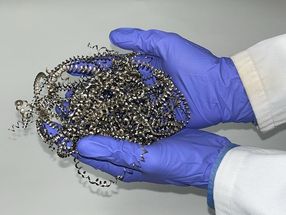Jet fuels from biomass waste
A four-step process to produce alkanes in the range of jet and diesel fuel from the biomass of wood processing and pulp mills has been reported in Green chemistry.
In the search for alkanes more suited for transport fuels, previous researchers in this area carried out tests using model biomass compounds without any impurities. George Huber, from the University of Massachusetts, and colleagues have taken their own previously designed method and applied it to an aqueous carbohydrate feedstock that is more representative of the waste biomass from power plants and wood manufacturing facilities. In this case, a hemicellulose extract from north-eastern hardwood trees.
The four steps of the process include: (1) acid hydrolysis and xylose dehydrogenation, (2) aldol condensation, (3) low temperature hydrogenation, and (4) high temperature hydrodeoxygenation. Huber’s team was able to obtain 76% of the theoretical yield and an economic analysis estimated the cost of production using this process would be between $2.06/gal and $4.39/gal, depending on initial xylose concentration, refinery size and overall yield.
Jet and diesel fuels are currently produced mainly from petroleum-based crude oils. Sustainable production of fuels has been attempted before, by using non-food lignocellulosic biomass (composed of cellulose, hemicellulose, and lignin) and vegetable oils. Unfortunately these methods make light alkanes that are not suitable for use as jet and diesel fuel due to their high volatility.
Original publication: Rong Xing, Ayyagari V. Subrahmanyam, Hakan Olcay, Wei Qi, G. Peter van Walsum, Hemant Pendseb and George W. Huber, Green Chem.
Most read news
Topics
Organizations
Other news from the department science

Get the chemical industry in your inbox
From now on, don't miss a thing: Our newsletter for the chemical industry, analytics, lab technology and process engineering brings you up to date every Tuesday and Thursday. The latest industry news, product highlights and innovations - compact and easy to understand in your inbox. Researched by us so you don't have to.


























































